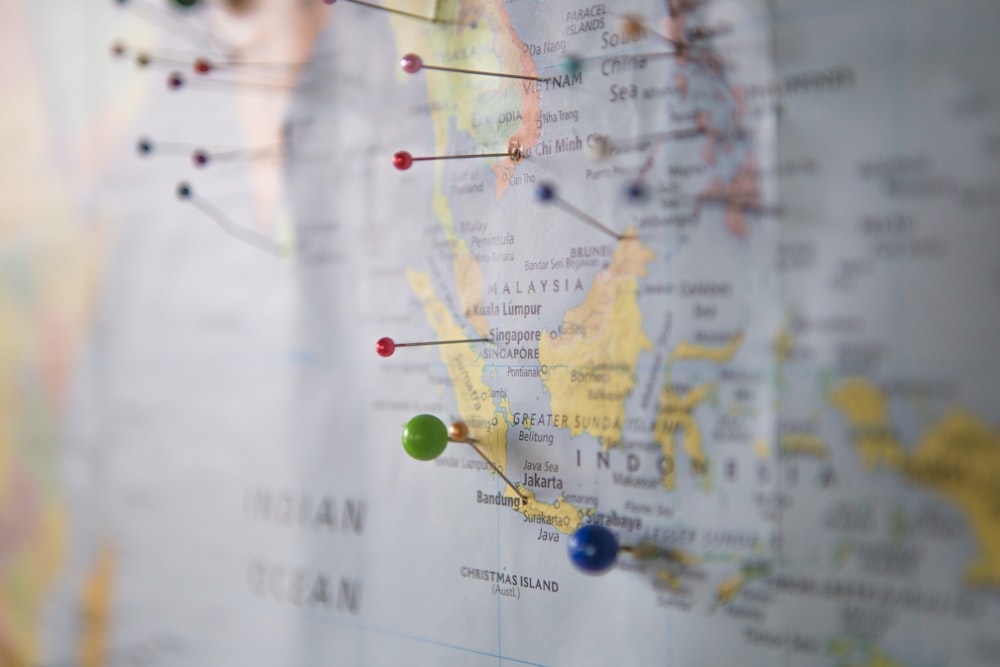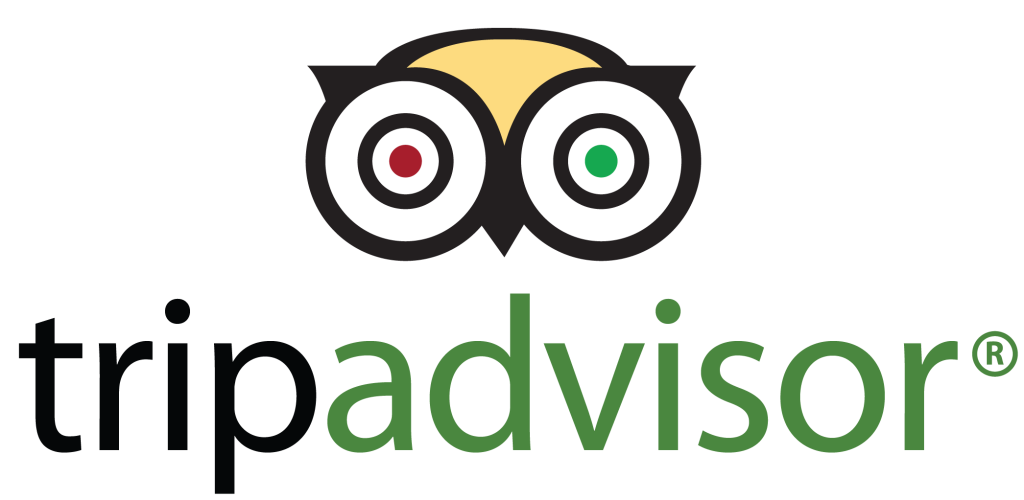As a hard-working entrepreneur, you’re always looking for ways to increase your leads in travel industry. The more leads you get, the more trips you book, and the more trips you book, the more commissions you make.
Digital media lead a shift in the business world. The world of business travel is also changing, and lead generation can seem overwhelming here. But, once you understand marketing and how to generate leads, you can pretty much control any niche.
There are many ways travel agencies can generate leads, both organic and inorganic. Instead of relying completely on the host agency, here are a few measures that, as an agency, you can take to generate leads.

Here are some ways you can generate leads in the travel industry.
Sometimes SEO isn’t enough to get your website in front of your target audience or get the results you desire. Pay-per-click ads, or PPC, are featured listings in search engine results that you pay for every time someone clicks on them. Websites bid on the ad placement in an auction, in which the highest bidder wins the spot. You can set up pay-per-click ads on major search engines like Google or Bing or specific travel sites like Expedia and Tripadvisor.

An essential component of their marketing strategy is developing and maintaining relationships with travel agents for many travel businesses. Travel agents will put your product in front of their loyal clients and handle the entire sales process for you.
While you’ll need to offer a travel agent commission and perhaps some exclusive promotions, travel agents can be valuable partners in the long run. If you don’t have a few travel agents on speed dial quite yet, consider joining a local travel industry association or attending a travel trade show. Networking events are a great way to meet travel agents and learn more about this industry segment.
As the saying goes, your customers are also your best salespeople. If you provide a five-star experience, people will want to tell their friends and family about it, but offering a little extra incentive via a referral program will ensure that they spread the word.
Referral programs can include freebies, credits for future bookings, or even gift cards. If your travel business focuses on one specific geographical area, then you’ll want to think about referral bonuses that will be attractive even to guests or clients even if they don’t book your product often.

You’ve likely heard about search engine optimization, but do you know it? In short, search engine optimization, or SEO, ensures that search engines can find your website and put it in front of people searching for what you offer.
A few key components of SEO include informative content, clear formatting, links, and speed. You should also include common keywords that your target audience is searching for. SEO is a crucial piece of your digital marketing strategy because, without it, potential guests or customers will not be able to find your website.
What does SEO look like in practice? Let’s say that you manage a hotel in Downtown San Diego. After researching your target keywords, you find out that many potential guests are searching for “san Diego hotels downtown,” so you decide to update your website text to include “Looking for one of the best San Diego hotels downtown? We offer clean, comfortable rooms near the Gaslamp District at our San Diego hotel.”
Of course, all of your SEO and PPC efforts will fall flat if you don’t have a great website! Your travel business should have a website that communicates everything that a guest or customer needs to know in order to make a booking.
You’ll want to upload high-quality photos, contact information, reviews, and answers to frequently asked questions. You may even consider using a sales funnel, which is a popular digital marketing strategy that guides customers through the purchase process.
A good website doesn’t need to be packed with bells and whistles; simple is often best. Focus on clearly articulating what your travel business offers and make the “book now” button easy to find. You’ll also want to ensure the website looks nice on a desktop computer, a tablet, or smartphone.
While some travelers rely on the expertise from their trusted travel agent, many travelers choose to do their research. But today’s travelers aren’t finding their travel intel in a guidebook; they’re finding it on blogs.
Travel bloggers often provide detailed, objective information about destinations, hotels, tours, restaurants, and transportation. Some bloggers have built followings of thousands of readers who trust their advice time and time again – so they can provide fantastic exposure for your brand.
Your travel business can partner with a blogger by asking them to write a blog post about your business, usually in exchange for a free trip or monetary compensation. While it can be tempting to work with the bloggers with the biggest audiences, you may actually see the biggest return on investment when you work with niche blogs with readers who fit your target demographic.

To harness the power of word-of-mouth marketing to generate leads, you need to build trust. According to consumer research, about 92% of all customers say they trust recommendations by the people they know. Thus, if you want to grow your lead generation, encourage your current customers to talk about your product to their friends.
Using a customer referral program, your customers can keep their peers loyal to your brand. According to a study conducted by Goethe University, customers are 18% more likely to stay loyal to your brand if they have been introduced to it by word of mouth.
Giving fans an opportunity to engage with your travel product creates a buzz around your product. About 66% of those given social recognition by their travel agencies are likely to give referrals to their travel agency’s product in their circles.
You must have Facebook, Twitter, LinkedIn, Tumblr, and Pinterest for a start. Other channels can come after these. Here’s what you can do:
Consider,

Never underestimate the power of calls to generate travel leads. There’s a reason that 98% of travel companies take bookings over the phone. In fact, in 2019 we found that 55% of travel agencies only accepted bookings via calls!
Holiday bookings come with lots of questions and queries, meaning you just can’t beat talking directly with a booking agent. A great way to increase the number of leads from your travel website is through web calling and offering a web call back.
Both of these options make it easier for customers to call you: web calling by allowing customers to call you through your website, and callback by allowing them to talk to you at a time that is convenient. Placing a click-to-call button and a call-back option on all website pages is proven to generate more travel leads.
Take Yellow Zebra Safaris as an example. After implementing Talkative voice web calling and callback solutions across their website, inbound travel leads increased by 20%.
To learn more about call-back services Limecall offers read more here: https://limecall.com/click-2-call/
Blogging is the top form of content marketing and, if done well, is an inexpensive and super effective way of getting more leads for your travel agency.
The purpose of a blog is to frequently produce fresh content that grows the awareness of your company and brings more potential customers to your website. For travel agencies, the subject matter for blog posts is endless, but be aware that there’s also high competition as there are many travel bloggers on the scene.
SEO is a big part of making a blog worthwhile; a blog with no readers isn’t bringing you any travel leads. The best way to have a successful blog is to make it niche and ensure it is directly related to your company. If your travel agency specializes in trips to Asia, focus your blog on tips and tricks for holidays in Asia.

Live chat is a great way of initiating conversations with clients. Through pop-ups and nudges, you can encourage customers to talk with an advisor and answer any questions they have at any point of their customer journey.
In 2019, only 55% of travel companies featured a chat solution on their website in some capacity. In an industry where calls seem to take dominance, you might think having a chat service is redundant. In actual fact, live web chat is a very cost-effective method of generating more travel leads.
Perhaps a customer needs further information on an all-inclusive holiday. With live chat they can ask an adviser in real-time, without having to leave the webpage, and get their answer quickly.
Why not use your existing customers to generate more digital travel leads? Online referral schemes are a good way of getting more customers without much work from your end. They are especially effective for services that cost more (like holidays), as people are more likely to opt for a company they know a friend or family member has had a good experience with.
It is a good place to start by giving existing customers an incentive to recommend you to friends and family, such as an online discount on their next holiday. You could even up the incentive by giving both parties a discount if the referred customer books online.
Offering discounts might sound scary, but an effective online referral scheme will save you money in marketing expenses, plus the extra leads should recoup your costs. Think about the example above. You generated two travel leads from one online referral – one new customer and a returning customer.
Consumers are more likely to compare travel agencies and book their holidays all online, meaning having a website is vital to generating travel leads.
However, it’s not good enough to just have a website – your website needs to be optimised to provide the best user experience (UX). That means fast loading times, a clear and visually appealing layout, good use of images and videos, and, very importantly, ensuring it is all optimized for mobile viewing.
Perfecting your website Search Engine Optimisation (SEO) means you can generate more organic travel leads for free. SEO is all about helping potential customers find you when they conduct an internet search. You want to appear in search engine results when people search for things related to your business.

When traveling individually and with family to a new travel location, create a video. Capture memorable moments with nature, landscape, river, waterfalls, and local people.
After that upload the videos with SEO-friendly titles on YouTube.
The goal here is to lead and inspire people to travel and explore the beauty of nature and different parts of your country and overseas.
When you will be able to inspire people to like and subscribe to your channels, you will start generating travel leads automatically from YouTube within a few months or weeks.
When it comes to paid ads, travel agents find themselves asking two questions:
There is the option of choosing the more traditional methods like mass media, billboards, flyers or handing business cards. But how effective is that for your travel agency? You won’t be able to track leads or build a client base.
Most travel agencies’ most effective ways for advertisement are through digital channels. In first place comes Google Ads which drives traffic and increases sales. The result is ranking your travel agency among the first pages on the search engine. When a client types a set of keywords the agents paid for, you will show up among the top results.
The main advantage of paid advertising is visibility to those interested in buying your travel packages. Next, Facebook is the most used advertising platform because of its several advantages. Hence, the ability to tailor your audience in detail means a high probability of buying your travel kit. This is in case you have a specific travel package or offer to promote.
In accordance, you set the ad parameters like:
Most travel businesses have Facebook pages allowing them to reach and engage with their users.
Facebook Ads in return will bring more traffic to these pages so that travel agencies can promote future offers.
Lead generation for travel agents has been quite a challenge. Recently, lead programs and travel lead generation agencies are emerging to help with this challenge. On the other hand, Travel agents liked the fact of outsourcing such difficult tasks to specialized companies.
Most travel lead generation businesses are charging per leads and not sales. But they are offering highly qualified leads for travel agents with important conversion rates in return. Otherwise, you can choose free leads programs, but they won’t be tailored to your needs.
However, most of these travel leads programs serve only the B2B travel industry. It is not recommended to sign up for this kind of program, since they won’t provide leads on travel seekers. Although, specialized lead generation companies can surely offer tailored leads for travel agents.

Travel agencies started relying on branding to attract more leads in recent years. Defining the targeted audience and connecting with them became the main focus for travel agents. As a matter of fact, they started creating a brand image with visuals and written content which helps with SEO. In addition to a brand community that gathers all their clients and generates organic leads.
Since these times presented threats to the travel industry, there was a loss of 9.8% in the travel business growth. In consequence, branding became essential for customer retention and high exposure of the travel agents. However, we are not talking about the logo, website, and lovely poems to describe a company. Rather, our focus is the brand identity which will showcase the travel agency’s purpose and the clients they serve.
In this case, it is crucial to allocate a huge resource for the marketing department to create a brand image. While for certain travel agents this might require development or even a new and fresh identity.
Getting your business listed on Google is a really quick and easy thing to do, but you will be surprised how many travel operators have not registered with Google Business.
In addition to providing a web source for your business address, contact details and opening hours, a Google Business Listing provides legitimacy, a trusted review profile and a place to answer customer questions. It is also good for improving the search engine optimization of your website.

If you are a local travel operator then getting listed on Tripadvisor is a no-brainer.
Tripadvisor’s algorithm uses the quality, quantity and freshness of reviews to rank listings. This means listings with significantly less reviews can still rank high if the quality and freshness of reviews are better than other listings.
Like marketplace listings discussed above, a Tripadvisor listing also needs frequent attention to ensure you appear high in search. To succeed on Tripadvisor, you need to focus on growing your listings with reviews, which brings us to our next channel.
Lead generation for travel agents can represent an overwhelming challenge. Especially in the past year where travel agents faced losses due to the pandemic.
Implementing the above tips to generate 10 to 20 leads per day can look like lots of work. But you have not to do everything in one week or two.
You can build a small but effective process to implement everything one by one on a daily basis. If you follow the proper execution process to promote and market your travel agency online, then obviously the results will be great.
, January 30, 2022, Team LimeCall

Top rated callback automation platform that connects your website visitors to your team within 20 seconds through phone callback and whatsapp driving upto 40% more conversions.
Learn more